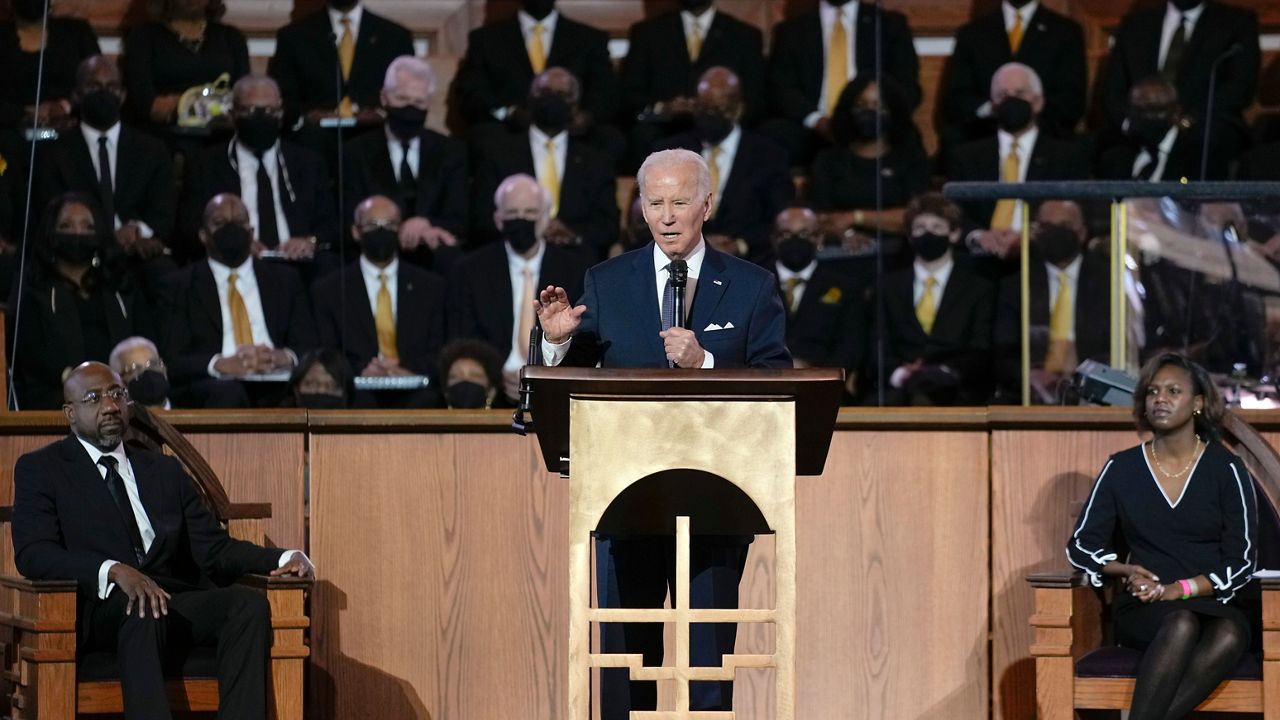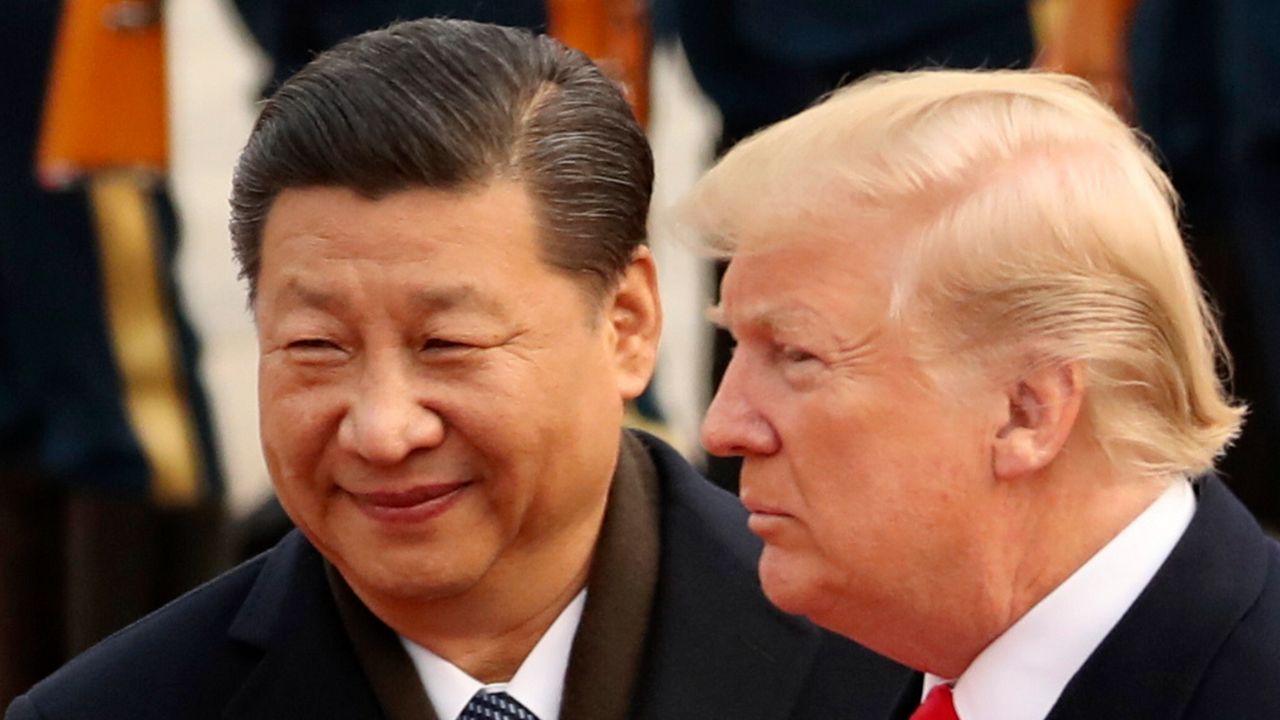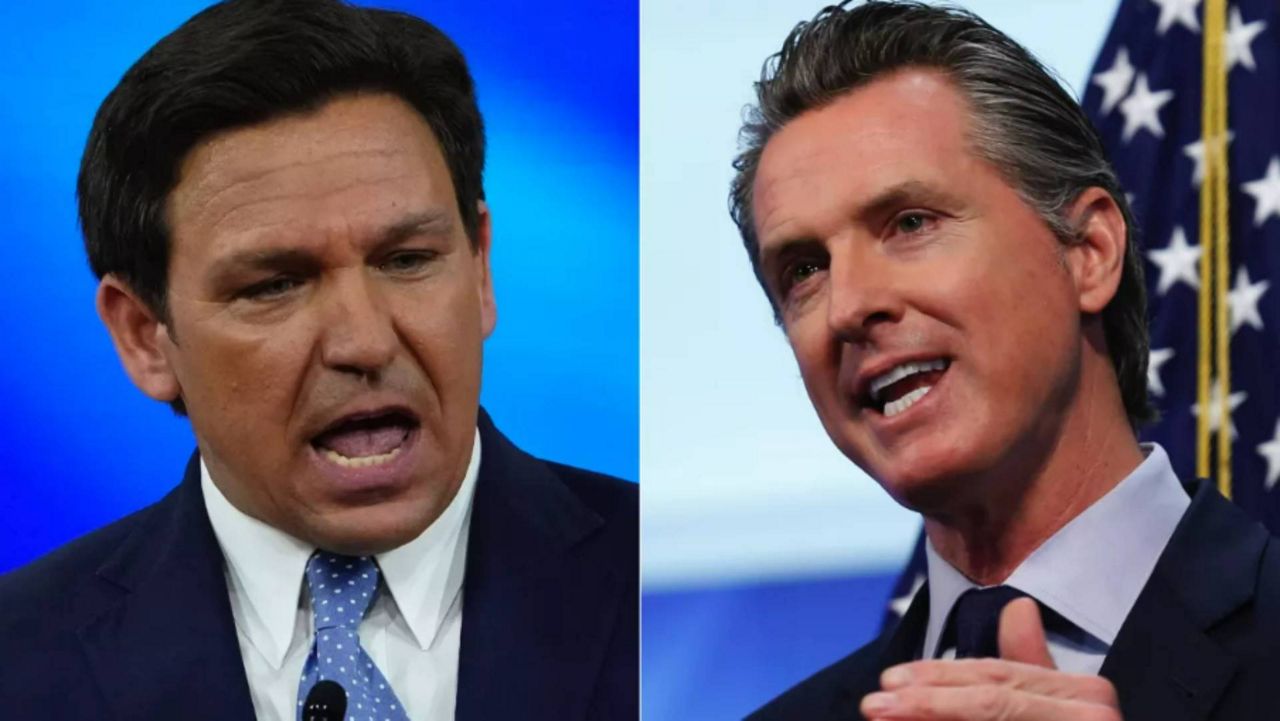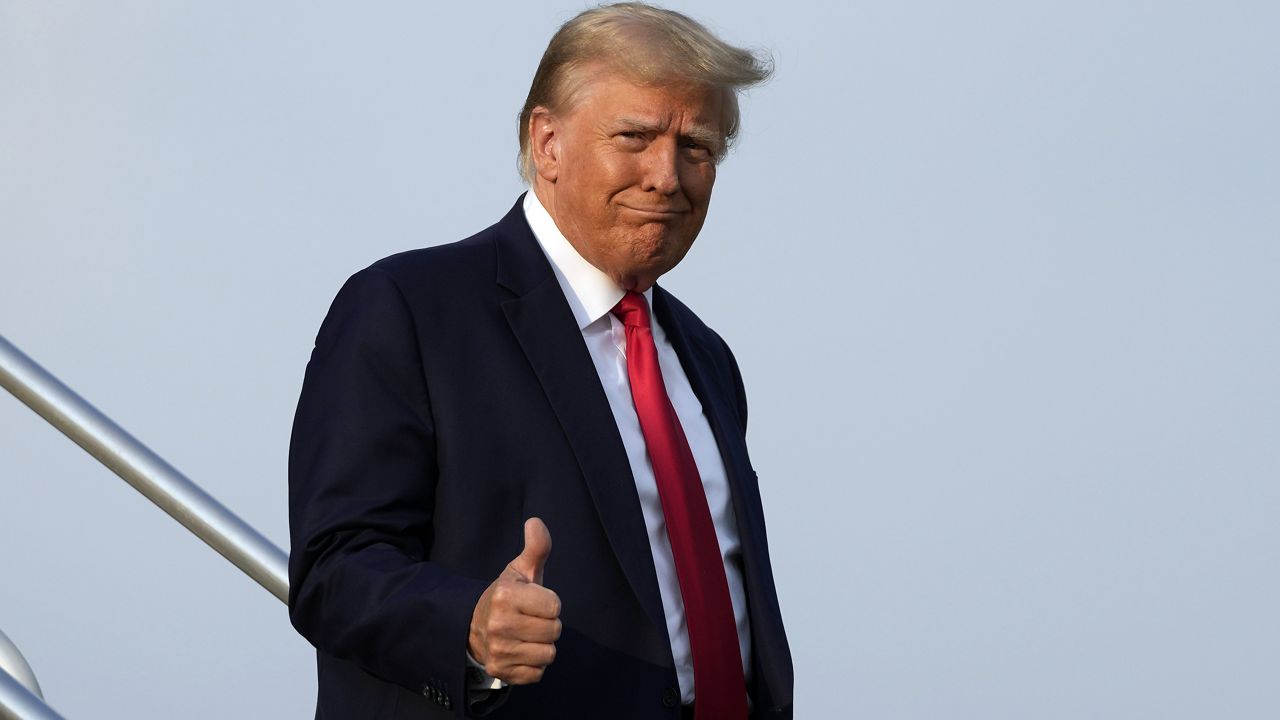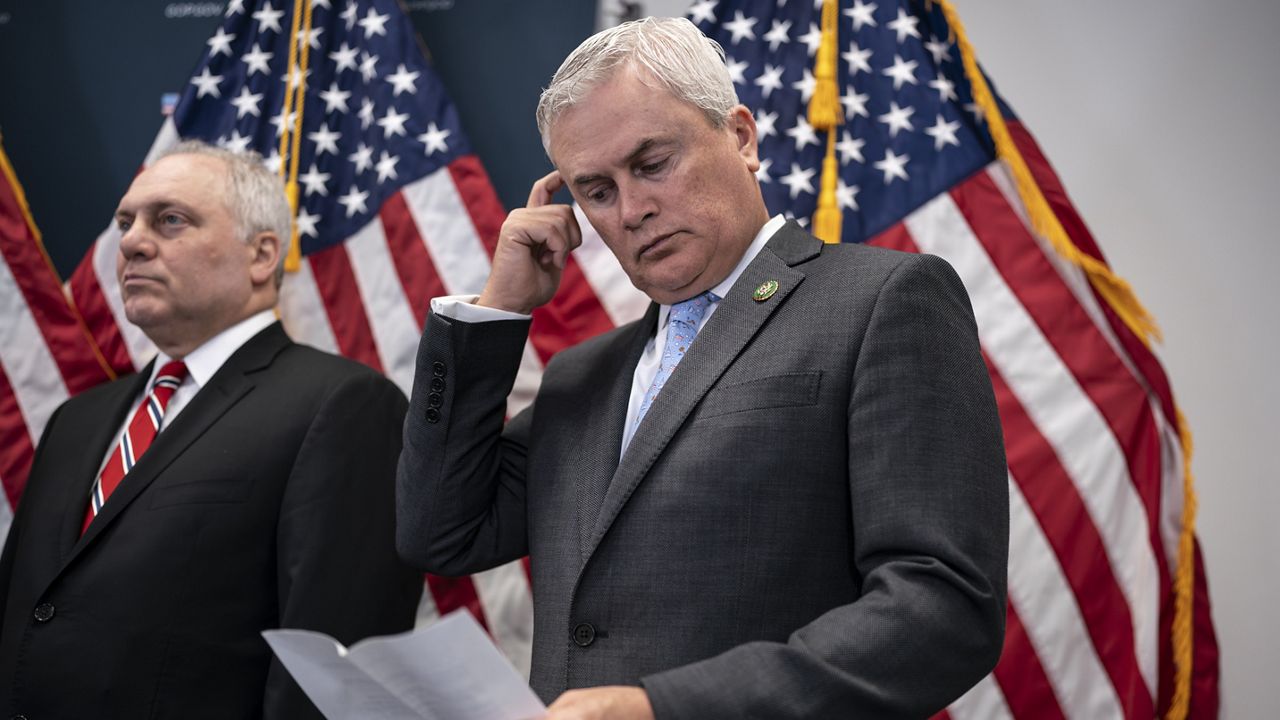In a speech honoring Dr. Martin Luther King, Jr. on what would have been his 94th birthday, President Joe Biden called on Americans to honor the late civil rights icon's legacy by following his example.
"On this day of remembrance, as we gather here at his cherished Ebenezer to commemorate what would have been Dr. King's 94th birthday, we gather to contemplate his moral vision and to commit ourselves to his path – to his path," the president said, before invoking one of the scripture verses the civil rights leader gave in his iconic "I Have a Dream" speech: "The path that leads to the beloved community, to the sacred place, to that sacred hour when justice rains down like waters and righteousness as a mighty stream.
Biden's quotation of Amos 5:24, was far from the only time the president invoked Scripture – and Dr. King's legendary rhetoric – in his remarks at the historic Ebenezer Baptist Church in Atlanta, the place where the civil rights leader was baptized, became a co-pastor alongside his father and the site of his funeral.
"The soul of America is embodied in a sacred proposition that we're all created equal to the image of God," Biden said. "That was the sacred proposition for which Dr. King gave his life, the sacred proposition rooted in Scripture, and enshrined in the Declaration of Independence. The sacred proposition he invoked on that day in 1963, when he told my generation about his dream, a dream in which we're all entitled to be treated with my father's favorite word: dignity and respect. A dream in which we all deserve liberty and justice."
"It's still the task of our time to make that dream a reality because it's not there yet," the president continued. "To make Dr. King's vision tangible, to match the words of the preachers and the poets, with our deeds. As the Bible teaches us, we must be doers of the word, doers of the word."
The president was invited by the church's current senior pastor, Georgia Sen. Raphael Warnock, who was recently sworn in for his first full term in Congress after winning re-election late last year. Warnock, who introduced the president to the congregation, invoked Biden's oft-used phrase that "America is an idea."
"America is an idea, an idea that is stronger than any army, bigger than any ocean, more powerful than any dictator or tyrant," Warnock said. "It gives hope to the most desperate people on Earth. It guarantees that everyone is treated with dignity and gives hate no safe harbor. It instills in every person in this country the belief that no matter where you start in life, there's nothing you can't achieve if you work at it.
"That's what we believe," he continued. "That is what we believe, but it is also the reason we come each year to lift up Martin Luther King, Jr., and so many others. Because Langston Hughes perhaps said it best, that America is the land that both is, and is to come. We are pushing towards those ideals."
Biden told the gathered congregation that the "battle for the soul of this nation is perennial, it's a constant struggle."
"It's a constant struggle between hope and fear, kindness and cruelty, justice and injustice," Biden said. "Against those who traffic in racism, extremism and insurrection. A battle fought on battlefields and bridges, from courthouses and ballot boxes to pulpits and protest, and at our best, the American promise wins out. At our best, we hear and heed the injunctions of the Lord and the whispers of the angels.
"But I don't need to tell you that we're not always at our best," he added. "We're fallible, we fail and fall, but faith and history teaches us that however dark the night joy cometh in the morning."
"That joy comes with a commandment of Scripture," Biden said, before quoting from Matthew 22:37: "Love the Lord thy God with all your heart, and with all your soul and with all your mind."
"Easy to say," the president added. "Easy to say, but very hard to do. But in that commandment, in my view lies the essence of the gospel and the essence of the American promise. When we see each other as neighbors and not enemies that progress and justice come. When we see each other as fellow human beings and as children of God, that we bend to begin to walk the path of Dr. King's Beloved Community, a path his Dream inspired, and his legacy propel us forward to this day."
The president, at the beginning of his speech, also paid tribute to the King family – "Those days of remembrance are difficult. They bring everything back as if it happened yesterday." – before paying tribute to Dr. King's beloved wife, activist and civil rights leader Coretta Scott King, who died in 2006.
"She led the moment to created the King holiday and so much more," Biden said, to applause from the crowd. In my view, this is her day as well."
The president called Dr. King one of his two political heroes, the other being civil rights advocate Robert Kennedy, who was assassinated two months after Dr. King. He also made the case that the United States, and the world, is at an "inflection point."
"I stand here at a critical juncture for the United States and the world, in my view," Biden said, adding that the next several years will "determine what the world looks like" for the next few decades.
"This is the time of choosing," the president said, adding: "Are we a people who will choose democracy over autocracy?"
"Progress is never easy," he later added. "But it's always possible that things do get better on our march toward a more perfect union. But at this inflection point, we know there's a lot of work that has to continue on economic justice, civil rights, voting rights and protecting our democracy – and on remembering that our job is to redeem the soul of America."
The president concluded his remarks by invoking a now-infamous question posed by Dr. King: "Where do we go from here?"
"My message the nation on this day is we go forward," Biden said. "We go together. When we choose democracy over autocracy, a beloved community over chaos, when we choose believers in the dreams to be doers, to be unafraid, always keeping the faith."
"There's hope, there's always hope," Biden added. "We have to believe. Ladies and gentlemen, that was Dr. King's path, in my view, the path of the keeping the faith. It must be our path.
"Folks, for God's sake, this is the United States of America," he said, adding: "There's nothing beyond our capacity, nothing beyond our capacity if we set our mind to it."
In a proclamation on the holiday, Biden outlined how King imagined a “different America” than the one that denied Black Americans basic rights, like being in certain public spaces or voting.
“He gave us a roadmap to unify, to heal, and to sustain the blessings of the Nation to all of its people,” Biden wrote.
“But the work continues because it remains unfinished.”
The president last visited Atlanta to give an impassioned speech on voting rights one year ago, drawing a throughline from the American South that denied Black people’s rights to today’s increase in state laws that restrict voting, which most often impacts people of color.
During that speech, Biden went his furthest yet by calling for changes to Senate rules in order to pass federal protections.
Yet federal voting rights reform, such as the bill named for civil rights champion Congressman John Lewis, stalled in the last Congress, leaving advocates calling for Biden to do more.
The issue will come up again on Sunday, but the president has “exhausted what he can do” via executive power to advance voting rights, said Keisha Lance Bottoms, the former mayor of Atlanta who is now in charge of public engagement for the White House.
As Bottoms previewed the visit, she said the president’s team had been working on the speech for a couple of weeks and had not yet finished. Members of King’s family are expected to be present on Sunday.
Bottoms also said the president would have the opportunity to hear from local leaders, church leaders and civil rights advocates when he visits the church. Sen. Warnock has been “very vocal” about issues important to his community as both a political candidate and pastor, she added.
“Ebenezer is a cornerstone of the Atlanta community,” she said. “I'm sure the President will get an earful on what our needs and our desires are for our country when he's there.”
For his part, Biden in his proclamation said on Sunday he would “pay my respects and express my gratitude for [King’s] life and legacy by speaking at services.”
“On this day of commemoration, service, and action, let us hold up a mirror to America and ask ourselves: What kind of country do we want to be?” he wrote.
“Will we honor Dr. King's legacy by rising together – buttressed by each other's successes, enriched by each other's differences, and made whole by each other's compassion?" Biden added. "I believe we can.”
On Monday’s holiday, Biden will join Rev. Al Sharpton at the National Action Network’s breakfast, where the president will also speak.
At the breakfast, Arndrea Waters King, the wife of Martin Luther King III, Rep. Nancy Pelosi, D-Calif., and other leaders will be honored for their work in keeping “Dr. King’s mission alive,” according to the White House.
On Friday, White House press secretary Karine Jean-Pierre, who is Haitian-American, spoke personally about the trip to honor Dr. King's legacy, noting that her and Bottoms as Black women "have broken barriers."
"We are both looking forward to joining the president on this trip and being in what has been the epicenter of the movement [for] civil rights in this country for decades," she said.




